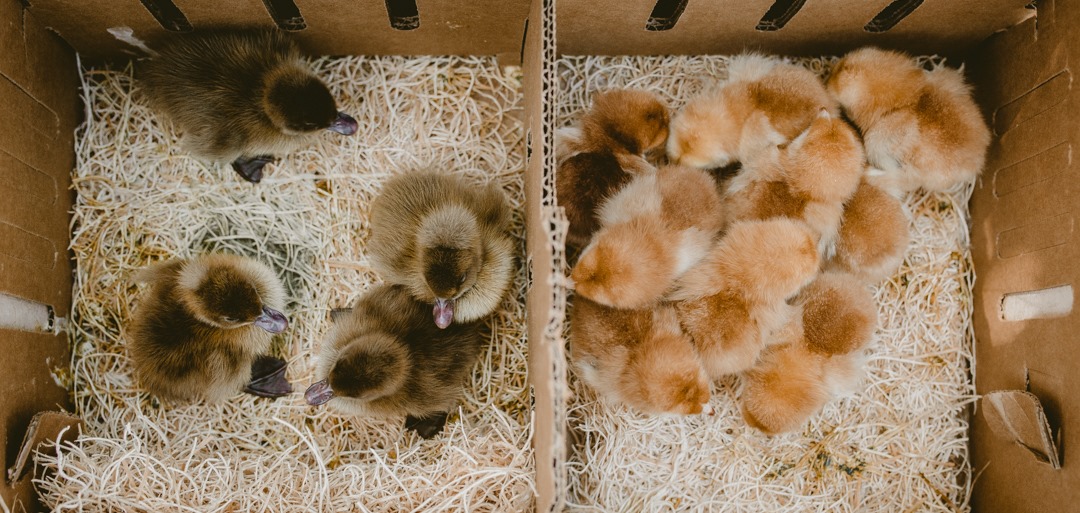
Who says you can’t have the best of both worlds? In this case, raising ducks & chickens. Two similar yet very different birds that are loved by a number of backyard farmers everywhere. If you’re a beginner flock owner looking to add ducks to your existing chicken flock, then there are a few key tips that are important to learn beforehand.
Ducks can be messy.
For a bird that LOVES water, it’s no surprise that they will leave a muddy puddle. A pond or small water bath is necessary for ducks to be able to maintain healthy plumage, maintain body temperature, digestion, as well as clean both their eyes and nostrils. It’s always best to have a designated area separate from your duck’s pond and your chicken’s run to prevent any muddy disasters. Additionally, duck poop does not dry as quickly as that of chickens, thus making it more of a hassle to clean. To minimize the hassle of cleaning duck poop, ensure that you do not use hay or any moisture collecting bedding in your duck’s run, instead make sure to simply use sandy dirt that may be easily raked.
Duck appetites.
Although you can feed ducks the same chick or layer feed as that of a chicken, it’s important to know that your ducks will consume a greater amount of food. Having space for your ducks to forage for other sources of protein will be helpful in supplementing their diet. Additionally, ducks will need Niacin (Brewers Yeast) to aid with development. When feeding your two flocks, it is important to separate their feeds if you choose to implement Niacin or any special medicated food.
Ducks laying eggs.
When it comes to collecting duck eggs, ducks will often lay in the same place that they sleep or elsewhere that they deem secluded and predator safe. Similar to chickens, you do not need a male duck (drake) in order for your female ducks to lay eggs.
Duck Gender Ratio.
Although an even amount of both female and male ducks may seem reasonable to begin with, it can create a great deal of complications sometimes. It is important that you have a ratio of more female than male ducks. A ratio of 1 male to 2 – 5 females is suitable if you are beginning. A high ratio of male ducks will be a danger to female ducks as the males may attempt to over mate and severely injure your females. If you have a drake, but no rooster in your chicken flock, then it may cause your hens to be vulnerable to any injury the drake may inflict, and vice versa. Again, you can easily choose to only have all-female ducks and chickens, but if you are certain you want a rooster or drake, then it is important to take your flock ratio into account.
Ducks are chatty, especially at night.
Unlike chickens, ducks only need a safe space on the ground to rest. Ducks also put themselves up at night a few hours after chickens. Although you may choose to have your ducks sleep in the same coop, is it important to note that ducks can be noisy at all hours, especially at night, making it difficult sometimes for your chickens to rest. If you are looking to have a special coop for your ducks only, then our Duck coop may be of consideration, with a built-in pool, drying mat, and nesting space, your ducks will be well protected.
Wondering about when to transition your ducklings from brooder to coop? Check out our post Brooder to Coop, When To Transition your Chickens for more information. We hope you find this article helpful as you begin or continue your backyard farming journey with raising ducks & chickens! If you ever have questions regarding anything mentioned in this blog post, reach out to us at 877-741-2667 or email us at support@roostandroot.com. We’re real people and always happy to help!


